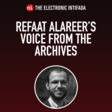29 August 2012
In the wake of the University of California issuing a campus climate report on Jewish students, recommending what many see as putting restrictions on Palestine solidarity activism on campuses across the state in the supposed effort of combatting “anti-Semitism,” the California State Assembly passed a resolution on Tuesday that many civil and human rights advocates say is a similar effort to curb activism and free speech by students and faculty.
The resolution, which was passed without debate and without input from community groups, “recognizes recent actions by officials of public postsecondary educational institutions in California and calls upon those institutions to increase their efforts to swiftly and unequivocally condemn acts of anti-Semitism on their campuses and to utilize existing resources, such as the European Union Agency for Fundamental Rights’ working definition of anti-Semitism, to help guide campus discussion about, and promote, as appropriate, educational programs for combating anti-Semitism on their campuses.”
HR 35 is a non-binding resolution and has no policy mandate. But a careful reading of the vocabulary and wording has direct similarities to accusations made by Zionist groups and students against Palestine solidarity activism and Muslim student groups on UC campuses in California. The resolution calls for public institutions, for example, to condemn “student- and faculty-sponsored boycott, divestment, and sanction campaigns against Israel that are a means of demonizing Israel and seek to harm the Jewish state.”
As I reported earlier this month, many Zionist and Israel lobby organizations are using and exploiting the term “anti-Semitism” to directly suppress criticism of Israeli policy and Palestine solidarity activism — including boycott, divestment and sanctions campaigns — on campus.
The Associated Press reported on Wednesday that “Most of the incidents of anti-Semitism the resolution cited are related to the Israel-Palestine debate. … The resolution characterizes the student campaign to pressure the University of California system to divest from Israel as anti-Semitic, and applauds university leaders’ refusal to consider it,” AP added.
Condemned by civil rights and human rights groups
However, even though this non-binding resolution has no policy mandate, it has provoked condemnation by human rights and civil rights groups across the state.
The Council on American-Islamic Relations stated on Wednesday that “along with nine community, legal, and student organizations, [CAIR] sent a letter to lawmakers in that state about House Resolution 35 … because it stifles robust political debate on university campuses. The letter urges lawmakers to reconsider the issue when they reconvene in January.”
The letter states, in part:
HR 35 is a poorly researched, highly ideological resolution that contributes to a climate of intimidation faced by Muslim and Arab students on California campuses. Additionally, it will serve to chill the speech of the many Jewish students who wish to voice critical viewpoints about Israel. HR 35 threatens California’s cherished tradition of respect for freedom of speech in educational settings. It lauds the very same report issued by UC Campus Climate advisory groups that has been subjected to widespread criticism for its potential threat to students’ civil rights. After considering the many objections to the Climate Report, UC President Yudof tabled the recommendations, and called for further review and analysis.
… HR 35 was rushed through the Assembly quietly and at the end of the legislative term, before advocates and community organizations had an opportunity to provide their input or impact assessments to Assembly members. It also was introduced and discussed in committee while most California students were not on their campuses, which prevented students from organizing around a resolution that will profoundly affect their lives. As such, its sweeping and unfounded allegations were not subjected to sufficient public scrutiny, nor was its potential impact on Arab, Muslim and Jewish students considered. This lack of community involvement explains why HR 35 is so out of touch with student sentiment, community interests and the concerns of civil rights groups.
Although HR 35 does not create any new law, it effectively encourages university administrators to infringe upon students’ free speech rights. By equating legitimate political debates about geopolitics with anti-Semitism, the resolution emboldens administrators to take action to chill and prevent such speech.
Additionally, in a press release also sent out on Wednesday, and emailed to The Electronic Intifada, Jewish Voice for Peace stated that its members are “appalled that the CA State Assembly passed a resolution yesterday which was presented as a broad condemnation of anti-Semitism on UC campuses but which goes far beyond that in supporting putting limits on the free speech of students, faculty and community-members who criticize Israeli policies.”
JVP’s press release adds:
Cecilie Surasky, Jewish Voice for Peace Deputy Director [stated]: “This resolution wants the University of California system to treat Israel differently from virtually every other country in the world, including the United States, by claiming much criticism of Israeli policies is hate speech. If any legislator tried to introduced a similar resolution claiming criticism of Iran was anti-Muslim, or attacks on Utah were somehow anti-Mormon, they’d be laughed out of office. And rightly so.
That’s one reason the Jewish community is completely divided on this issue —when the UC campus climate report on Jewish life referenced in the resolution made similar far-reaching recommendations to limit speech critical of Israel, the biggest pushback came from Jewish UC students, faculty and alum. The implications of limiting academic inquiry and free speech, even speech that makes some people uncomfortable, are deeply troubling. Just as alarming, this resolution cheapens the very serious charge of anti-Semitism.”
Jewish Voice for Peace earlier called on University of California President Mark Yudof to table a recently released report on Jewish student campus climate and to disregard its controversial recommendations to limit free speech until a methodologically sound and even-handed report could be conducted.
… While some Jewish students feel uncomfortable with public criticism of Israeli policies, whether articulated by other Jews or non-Jewish students, that does not make that criticism anti-Semitic. The answer is more speech and enhanced communication, not limiting speech in order to avoid the discomfort of some students.
Bill invoked earlier report on “campus anti-Semitism”
In an eloquent op-ed in Al Jazeera English on Wednesday about the roots of HR 35 and the ongoing fight for academic freedom in the US, Yaman Salahi wrote that “Although it creates no new law, HR 35 may embolden university administrators to curb students’ freedom of expression.”
Salahi writes that HR 35 invoked a report by the United States Commission on Civil Rights in 2006 on “campus anti-Semitism,” a report that was based on hearings of “one-sided testimony by only three individuals that rarely went challenged by commissioners.”
Salahi adds:
Nevertheless, Israel-aligned advocates continue to rely on the findings as an authoritative source, presumably hoping to capitalise on the USCCR’s historic prestige and status as an official body. USCCR held its hearing on the matter on November 18, 2005; findings and recommendations were adopted on April 3, 2006; and a full briefing was published in May 2007.
… Most shocking about the USCCR hearing is that it consisted exclusively of testimony from three speakers with political agendas. They were Susan Tuchman of the Zionist Organisation of America; Gary Tobin of the Institute for Jewish and Community Research; and Sarah Stern of the American Jewish Congress. All three of these organisations have a record of defending Israeli policies and attempting to silence or smear their critics.
UC administration says it won’t support HR 35
Even though its president, Mark Yudof, has proven to be an ally to Zionist organizations in their ongoing attempt to stifle criticism of Israeli policy across state campuses (the co-author of the campus climate report was the education chair of the Anti-Defamation League), his administration was concerned that resolution HR 35 would infringe on student’s free speech rights.
The San Francisco Chronicle reported on Tuesday that the UC system explicitly won’t support HR 35 because, as a UC spokesman said, “We think it’s problematic because of First Amendment concerns.”
The Electronic Intifada will continue to follow this story as it develops.






Comments
HR 35's Adoptionj of Zionist "antisemitism" Agenda
Permalink fw sparrow replied on
The Assembly has adopted the Zionist definition of "antisemitism" as including the naming of the Zionist State of Israel as an Apartheid Regime.. HR 35 also states "... that anti-Semitic activity will not be tolerated in the classroom or on campus, and that no public resources the will be allowed to be used for anti-Semitic or any intolerant agitation."
"Public Resources" can be reasonably interpreted as including denial of access to the UC campus - the same issue we fought against successfully almost fifty years ago at UC Berkeley with the Free Speech Movement when I experienced my first arrest in the Sproul Hall Sit-in.
HR 35
Permalink fw sparrow replied on
It is not antisemitism to advocate the international campaign of Boycott, Divestment and Sanctions from the Israeli Apartheid State until it ends the occupation and ceases institutional discrimination of its citizens based upon their ethnicity. Neither is it antisemitic to oppose a Jewish state founded and maintained by that same ethnological Apartheid - nor criticism of the Zionist foundation upon which that institutional discrimination is based. Opposition to the Jewish state is NOT opposition to the Jewish people nor even to an Israeli State.
HR 35 advocates utilizing the European Union Agency for Fundamental Rights definition of antisemitism. That same definition specifically states, "...criticism of Israel similar to that leveled against any other country cannot be regarded as antisemitic." The criticisms and activities leveled against Israel are precisely those leveled against Apartheid South Africa in the past and, in fact, South Africans now recognize and pronounce the Jewish state of Israel as an Apartheid State.